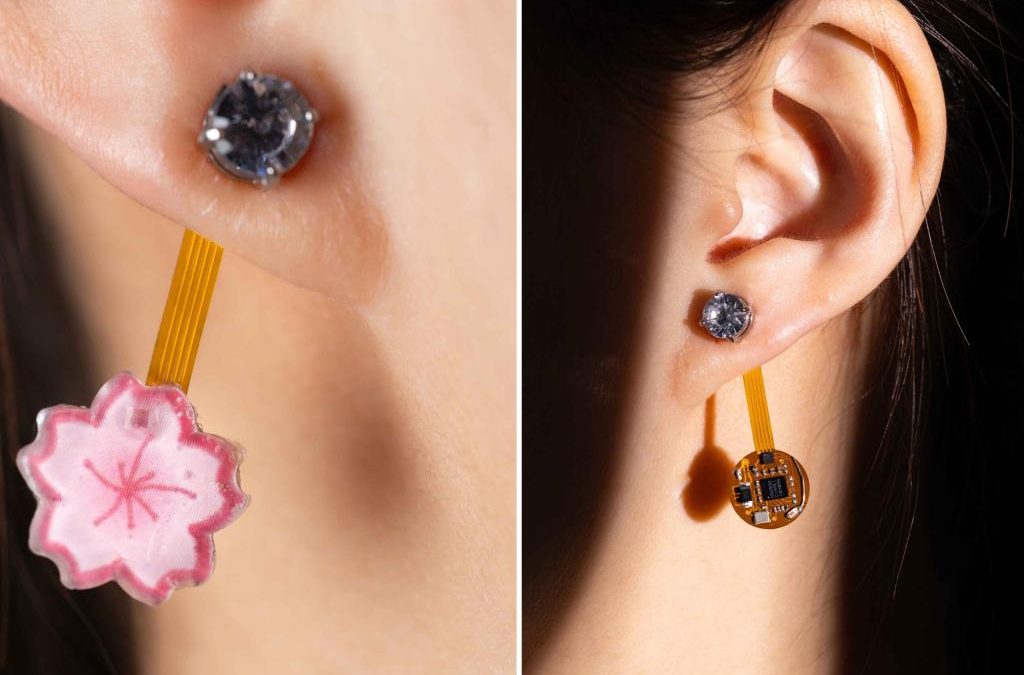Eat your hearts out, smartwatches.
Researchers from the University of Washington created thermal earrings that measure skin temperature.
The baubles are “first-of-its-kind smart earring that enables a reliable wearable solution for continuous temperature monitoring,” the UW study stated.
Each earring has a built-in Bluetooth chip, 28-day battery life, two temperature sensors, and an antenna. The dimensions of high-tech earrings are 11.3 millimeters wide, 31 millimeters long, and weigh 335 milligrams.
“We found that sensing the skin temperature on the lobe, instead of a hand or wrist, was much more accurate. It also gave us the option to have part of part of the sensor dangle to separate ambient room temperature from skin temperature,” Qiuyue Shirley Xue, a computer science and engineering doctoral student at UW, said in a statement reported by JCK.
An embellished magnetic clip connects to the temperature sensor and then to the ear, while the second sensor, which features a fashion design made with resin, estimates the room temperature.
Once the earring reads the temperature, it goes into a power save mode, ensuring the 28-day battery life is used efficiently.
“The earrings would sense activity and health metrics such as temperature and heart rate,” Xue explained, “while a necklace might serve as an electrocardiogram monitor for more effective heart health data.”
Because of the accessory’s location, UW researchers believe the earrings provide a more accurate body temperature read compared to smartwatches.
“Thermal Earrings [take] advantage of the unique position of earrings in proximity to the head, a region with tight coupling to the body unlike watches and other wearables which are more loosely worn on extremities,” the research elaborated.
Xue, who coauthored the study, mentioned temperature sensors on smartwatches only provide the average temperature for the day and the wrist placement can track ovulation, reported JCK.
Washington researchers are now working on the next advancement for the earring as they continue developing plans to bring the wellness wear to market.
“Further, we perform the first-ever investigation of the relationship between earlobe temperature and a variety of daily activities, demonstrating earlobe temperature changes related to eating and exercise,” the study shared.
Fitness-tracking accessories have become popular among health fanatics over the years. And while the devices can be beneficial to your fitness journey and goals, they could also be negatively affecting your life.
“The majority of the (few) controlled studies that look at the effect of smartwatches, step counters, and various forms of logging of health data find a significant but relatively weak positive impact on the person’s health and performance,” wrote Micael Dahlen and Helge Thorbjørnsen, the authors of “More Numbers Every Day: How Figures Are Taking Over Our Lives — And Why It’s Time to Set Ourselves Free.”
“We run a little faster, lose a little more weight, or perform a little better. But just a little.”
Source




